Are you looking to strengthen your business relationships and explore new opportunities? A well-crafted vendor partnership agreement can be the key to unlocking mutual benefits and fostering collaboration. In this article, we'll dive into essential elements to consider and outline some best practices for successful negotiations. Read on to discover how a strategic partnership can elevate your business to new heights!
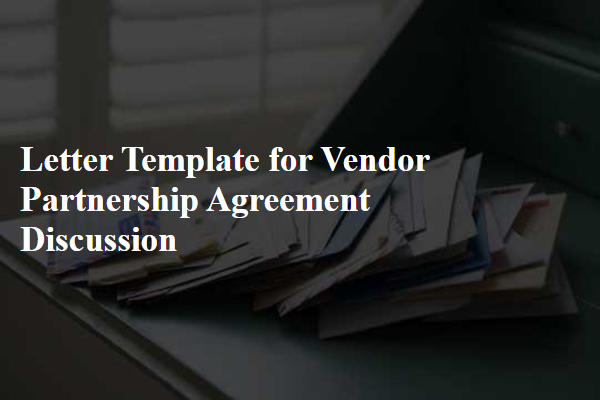
Clear Objectives and Scope
A vendor partnership agreement outlines the framework for collaboration between two entities, aimed at achieving specific goals within a defined scope. Clear objectives include establishing mutual benefits such as cost savings, enhanced service delivery, and increased market reach. The scope of the partnership may encompass areas like product development, marketing initiatives, or supply chain management. Setting measurable targets provides accountability, fostering transparent communication. It is essential that both parties articulate their roles and responsibilities, ensuring alignment with overarching business strategies. Regular review processes, including milestones and performance metrics, can facilitate ongoing evaluation and adjustment, maximizing the partnership's effectiveness.
Terms and Conditions
A vendor partnership agreement discussion requires clarity on terms and conditions to ensure mutual benefit. Essential components include pricing structures which outline costs related to products/services, payment terms specifying due dates and accepted methods such as wire transfer or checks, and delivery protocols indicating timelines and responsibilities. Confidentiality clauses protect sensitive information shared during the collaboration, while termination conditions delineate exit strategies and notice periods. Additionally, dispute resolution mechanisms provide pathways for addressing conflicts amicably, possibly through mediation or arbitration under specified governing laws. Establishing clear expectations in these areas fosters strong, respectful vendor relationships.
Responsibilities and Deliverables
In a vendor partnership agreement discussion, clear delineation of responsibilities and deliverables is crucial. Each party should define specific roles, ensuring accountability and transparency. A vendor, such as a packaging supplier for a retail company, might be responsible for delivering materials by a set deadline (e.g., the 15th of each month). The retail company may need to ensure timely payment, adhering to agreed currency and method, such as bank transfers in USD within 30 days of invoice receipt. Documentation requirements must also be outlined. For instance, the vendor might need to provide quality assurance reports after each batch, while the retailer could be tasked with supplying forecast sales data quarterly. Additional commitments, such as managing inventory levels or compliance with industry standards, should be included in this segment of the contract to ensure both parties align on expectations throughout the partnership.
Confidentiality and Data Protection
In a vendor partnership agreement, confidentiality and data protection are crucial elements that ensure both parties maintain the integrity of sensitive information. Confidentiality clauses outline the requirement for both parties to protect proprietary information, trade secrets, and client data, especially in industries like healthcare or finance, where regulations such as HIPAA and GDPR impose strict data handling protocols. Additionally, data protection measures must include encryption standards, secure storage methods, and regular audits to prevent data breaches, which can lead to significant financial penalties and reputational damage. This agreement must also state the duration of confidentiality obligations, the method for handling data upon termination of the contract, and the procedures for addressing any violations.
Termination and Renewal Clauses
In vendor partnership agreements, termination and renewal clauses establish conditions under which the contract can be ended or extended. Termination clauses define scenarios such as defaulting on terms, breach of contract, or external events affecting performance. For example, notice periods typically range from 30 to 90 days depending on the agreement's complexity. Renewal clauses may outline automatic extensions based on performance metrics or require explicit consent for renewal, with critical dates for evaluation. Additionally, legal jurisdictions and governing laws play significant roles in regulating these clauses, important for understanding dispute resolution methods. Properly drafting these sections ensures a balanced, clear understanding of expectations and responsibilities between all parties involved.

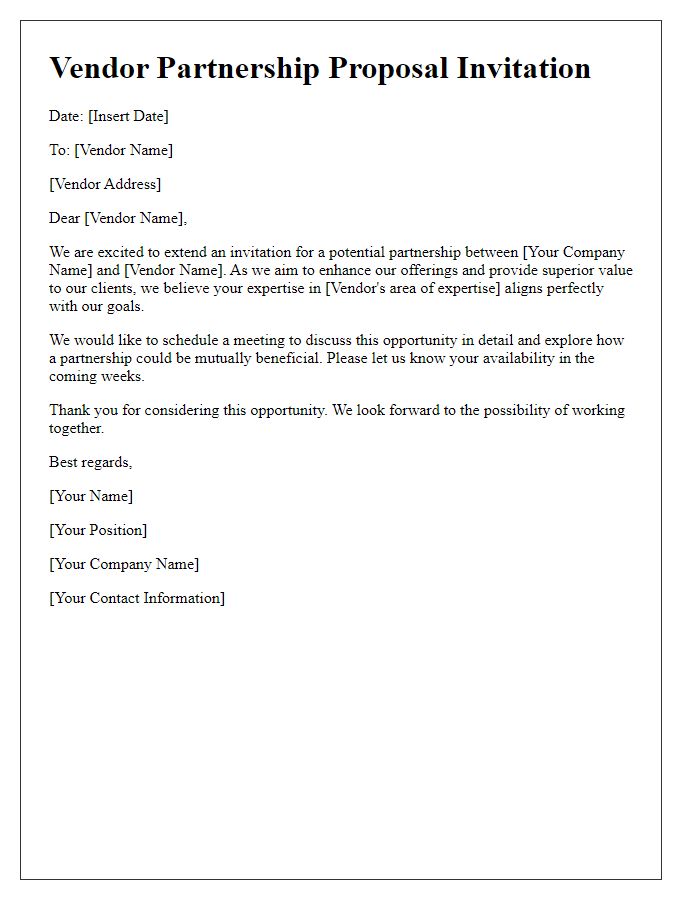
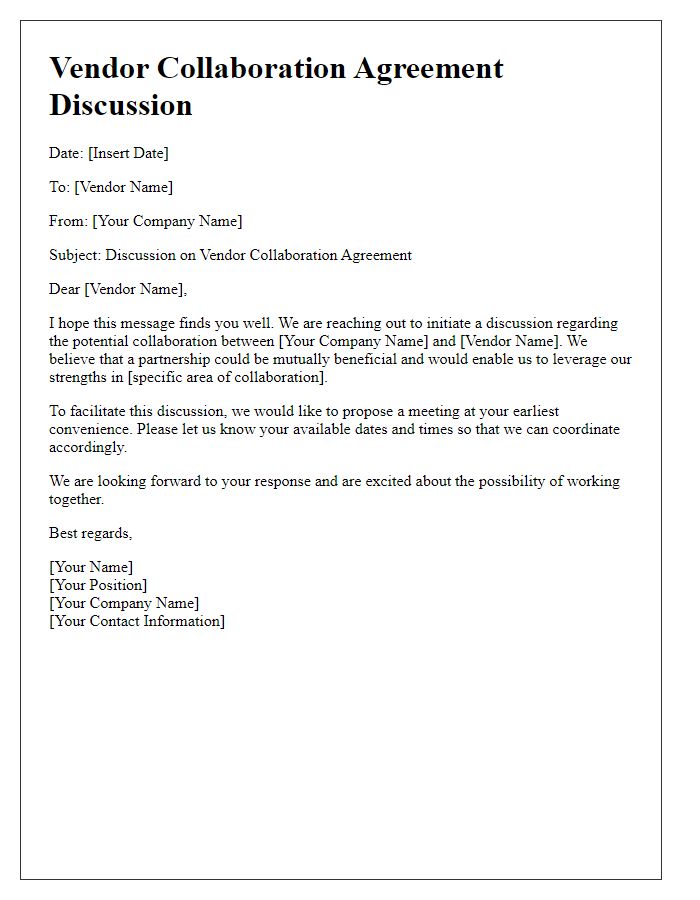
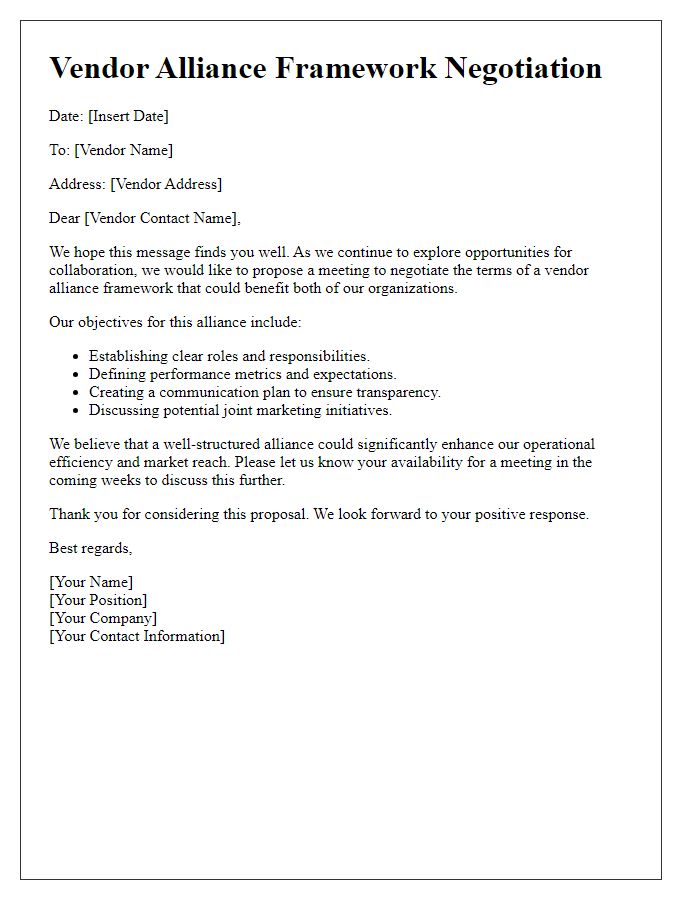
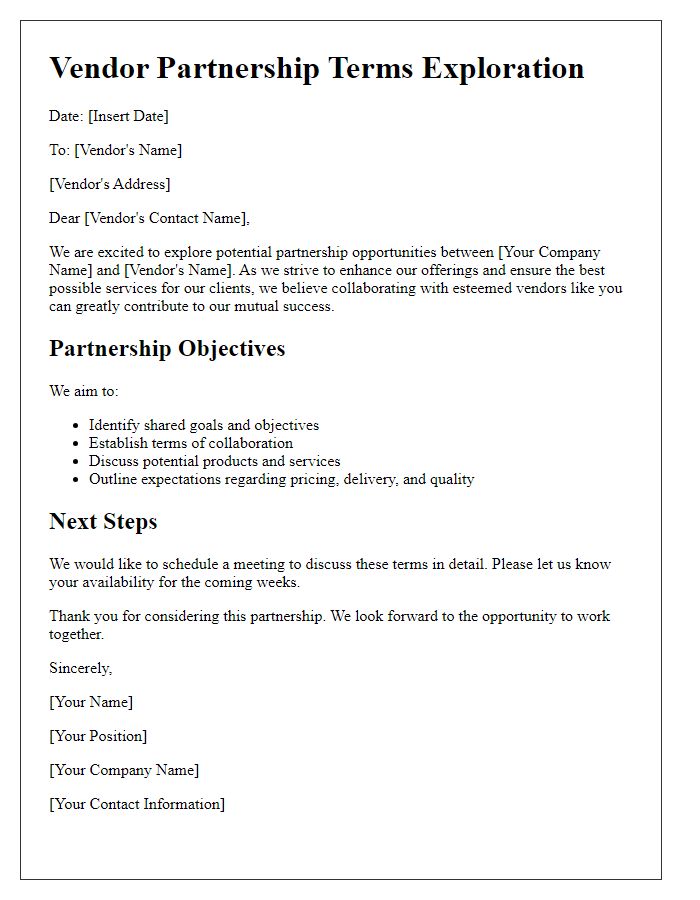
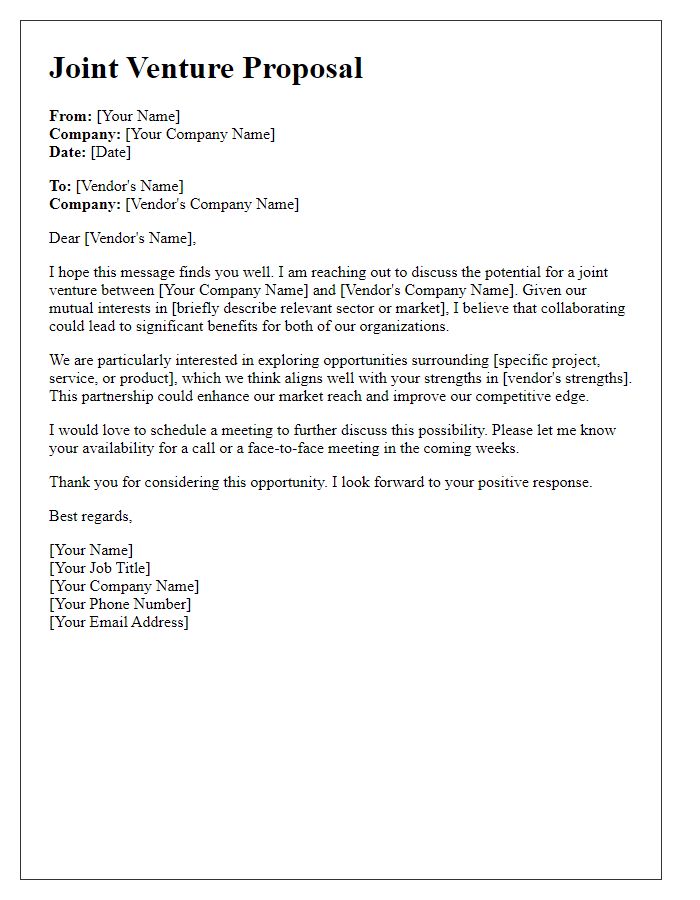
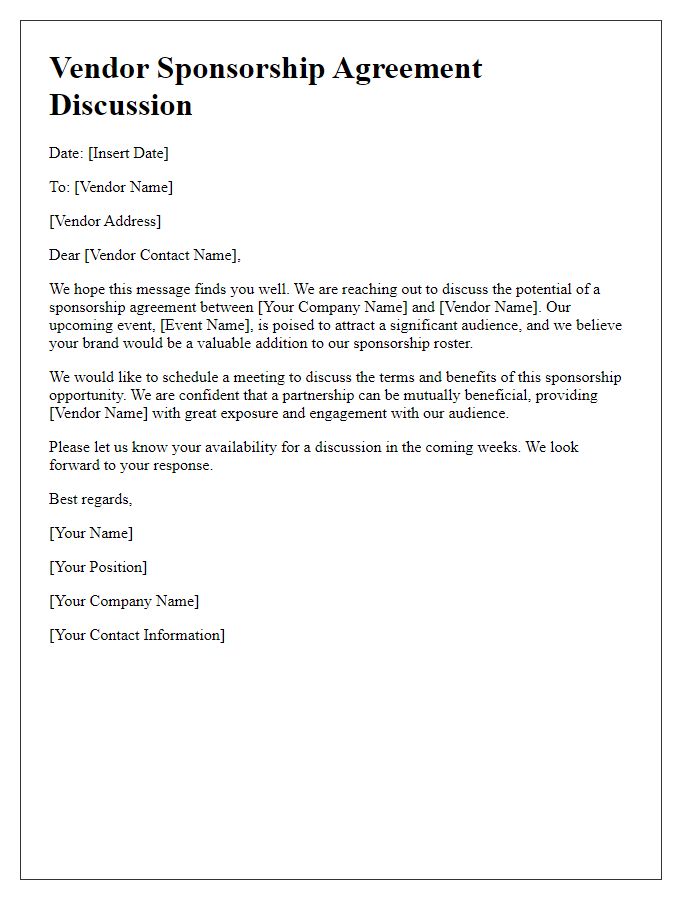
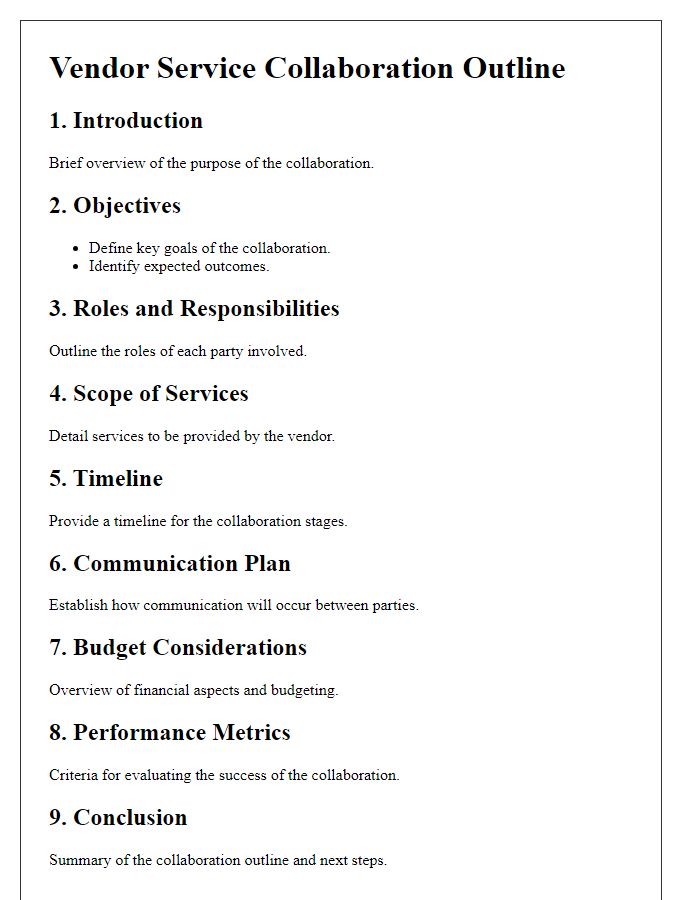
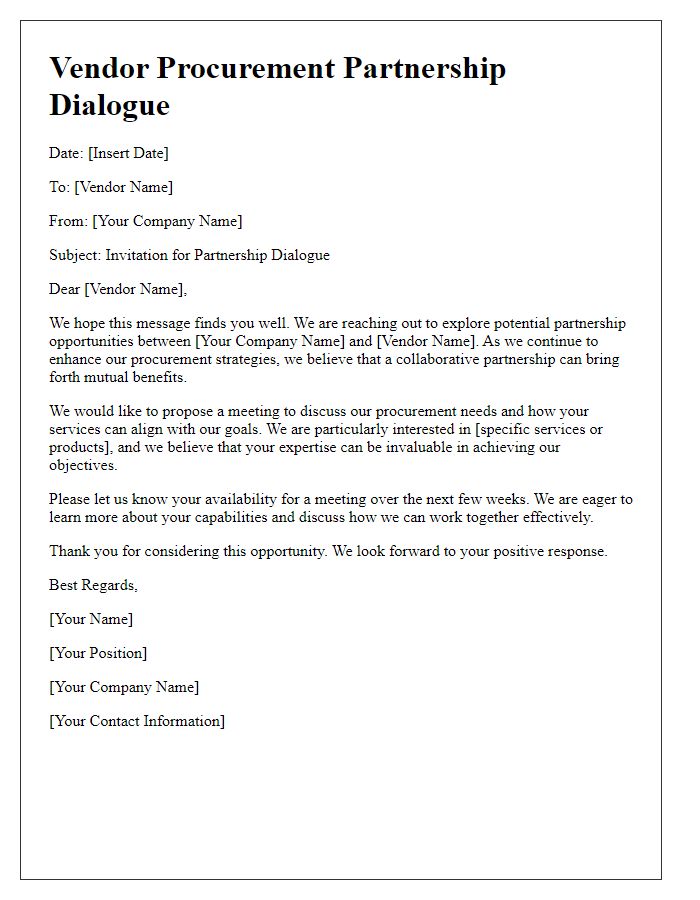
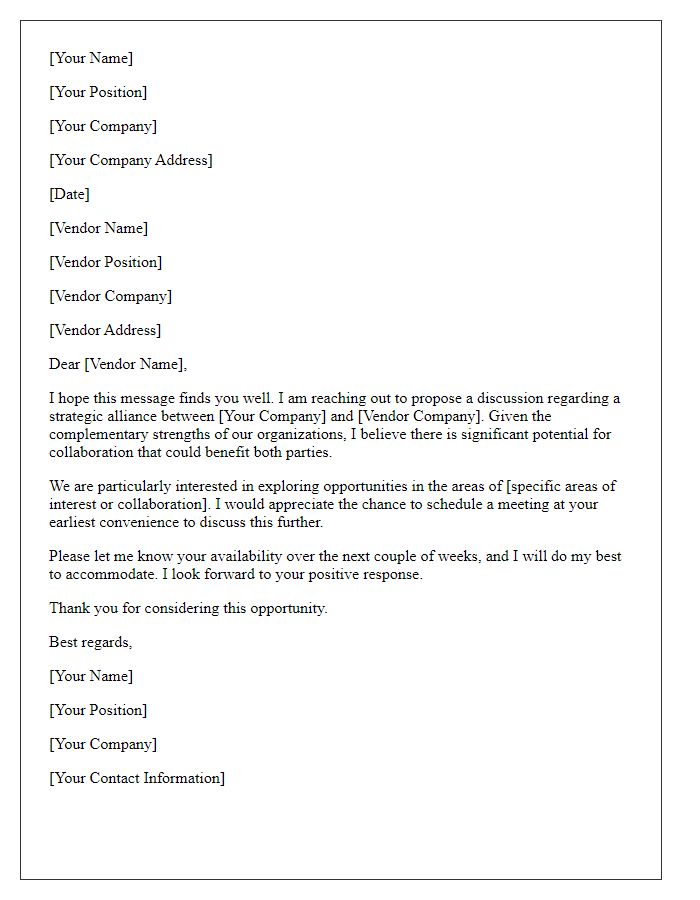
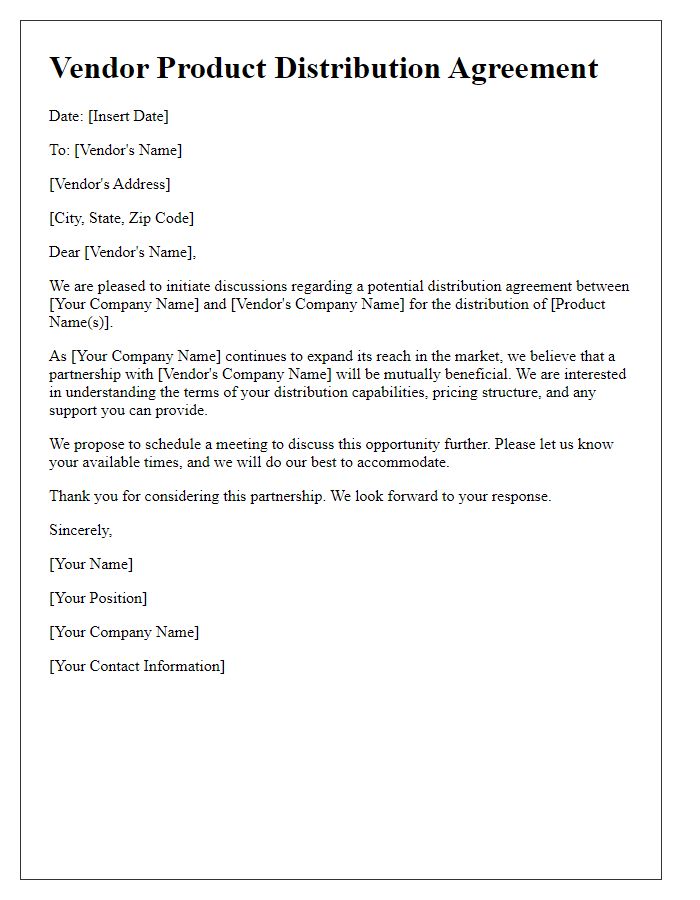

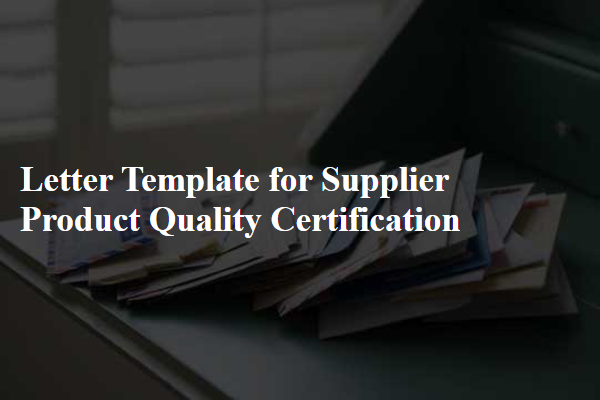
Comments